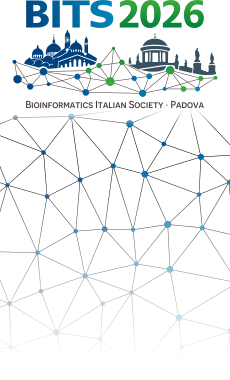A three years PhD position, sponsored by the Fondazione Cassa di Risparmio di Padova e Rovigo, is
available starting approximately from October 2009 at the Department of Biology of the University of
Padova within the Doctorate school of Biosciences and Biotechnologies, curriculum of Evolutionary
Biology. Salary on grant: About 12.500 Euro/year
Title of the project:
Transcriptomic analyses of the polyploid Adriatic Sturgeon (Acipenser naccarii)
The research project will focus on bioinformatic analyses and comparison of the transcriptomes of two
sturgeon species characterized by 454 sequencing technology.
Applicants should have basic knowledge of functional genomics, computational biology and bioinformatics.
Knowledge of programming languages would be advantageous. The successful applicant will be involved in
all the parts of the project described in the following abstract.
Abstract
The aim of this project is the first characterization of the transcriptome of a sturgeon species, (order Acipenseriformes, infraclass
Chondrostea). These fishes, due to their ancient separation from pre-Jurassic teleosts, are especially relevant for gathering information
on the processes leading to the evolution of terrestrial vertebrates. Besides their evolutionary interest, sturgeons have peculiarities that
make both the characterization of Expressed Sequence Tags (EST) and the set up of EST-linked molecular markers very interesting.
Particularly important are the high complexity of their genome, the occurrence of different ploidy levels, their highly-endangered status,
and aquaculture’s increasing interest in sturgeon caviar production. The species analyzed in this project is the Adriatic sturgeon
(Acipenser naccarii). It is endemic of the Adriatic Sea and its tributaries, on the brink of extinction with a high chromosome number (240)
and a debated ploidy level.
The characterization will be performed using the 454 GS FLX Titanium sequencing technology (Roche Diagnostics),which enables
obtaining about 1,200,000 transcribed sequences, approximately 350 base pairs in length. The main goals of this characterization are:
a) Acquiring relevant transcriptome information for the first time on a species of very high evolutionary interest.
b) Investigating the ploidy level following an innovative approach compared to the ones usually applied (Fluorescent In-Situ
Hybridization and microsatellite analyses). By focusing on the transcribed part of the genome and simultaneously characterizing a very
high number of sequences, it will be possible to evaluate the degree of functional divergence that is normally experienced by genomes
after a polyploidization event.
c) Identifying sex-specific molecular markers of relevant aquaculture interest for caviar production, which permit efficiently selecting
females at an early-life stage. Therefore comparative analyses will be performed with sequences from different fish ( or more generally
from vertebrate) species, for which a great deal of genomic information is available in Gene Banks. This action is aimed at identifying
homologies with genes known to be involved in sex determination, or with heterochromosomic regions, based on groups of synteny.
Single-locus markers will be developed on the putatively interesting regions and tested on individuals whose sex has already been
determined.
d) Isolating, for the first time in this group of fishes, a relevant number of SNPs (Single Nucleotide Polymorphisms) and EST-linked
microsatellites. They represent the most promising classes of markers to detect footprints of natural selection on genomes and to
separate the effects of selection which act on single locus, from drift, which acts on the whole genome. These markers will be important
tools for analyzing selective events in both natural populations and aquaculture stocks, not only for the Adriatic sturgeon but also for the
additional 24 species, distributed in the Northern hemisphere and considered to be highly endangered.
For further information please contact
Leonardo Congiu
Department of Biology
University of Padova
Via U.Bassi 58/ B
35121 Padova (Italy)
e-mail: leonardo [dot] congiu [at] unipd [dot] it
Tel: +39(0)498276218
Fax: +39(0)498276290
Società Italiana di Bioinformatica
Sede legale Viale G. Mazzini, 114/B – 00195 Roma
C.F. / P.IVA 97319460586
C.F. / P.IVA 97319460586
© 2003-16 • designed by esthos • powered by sciencedev




